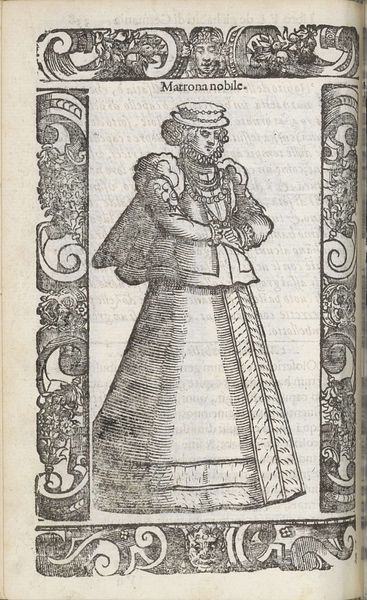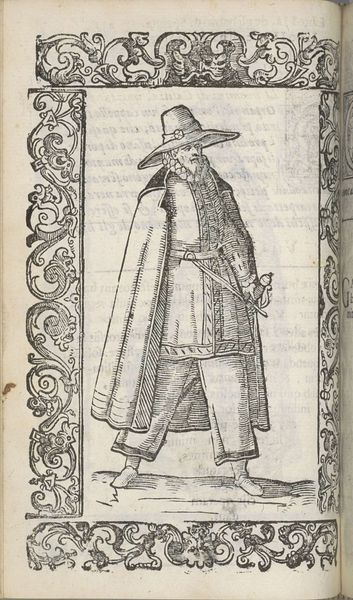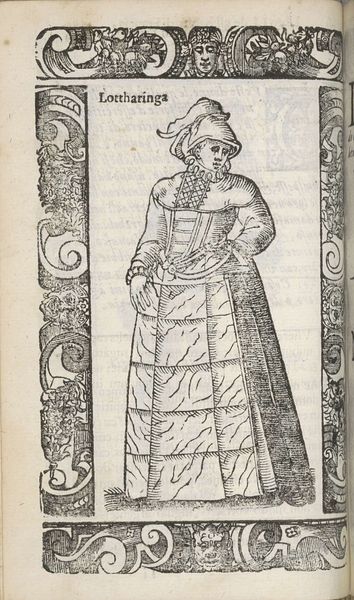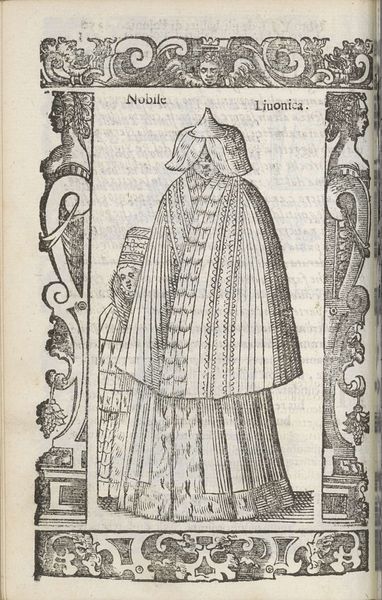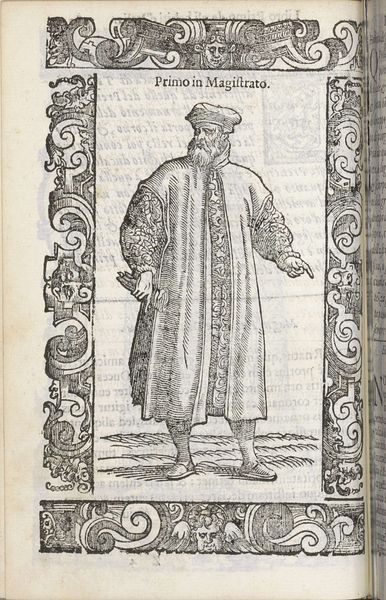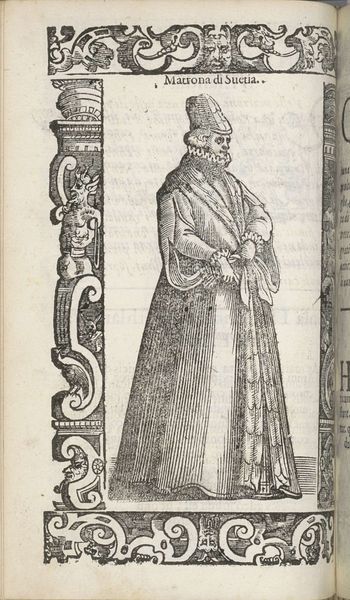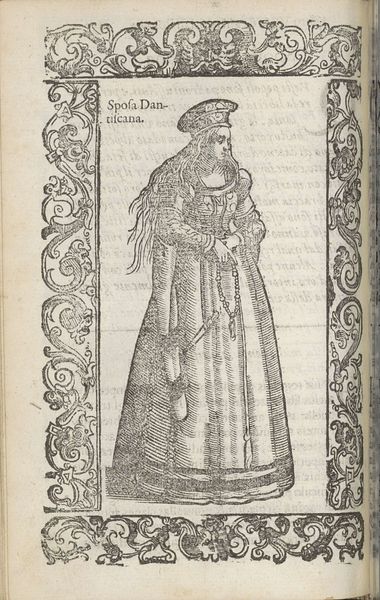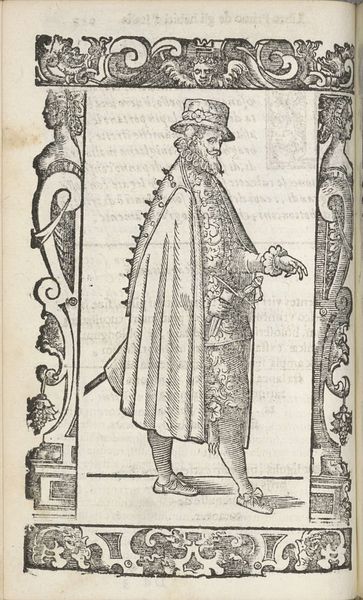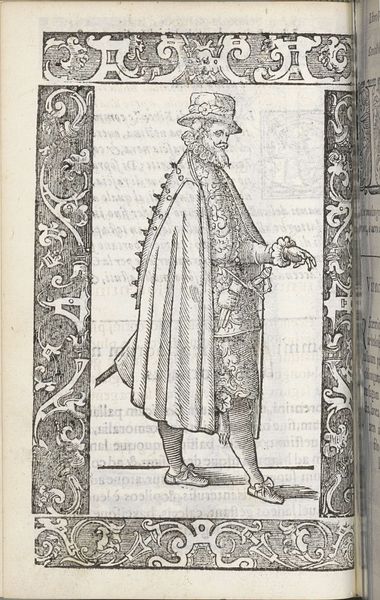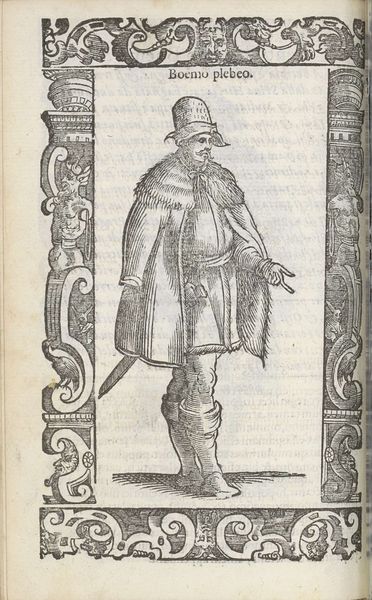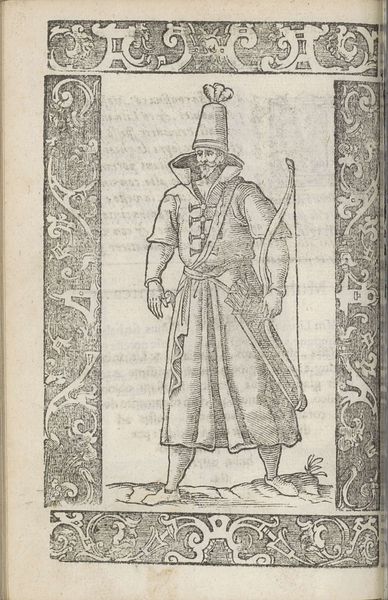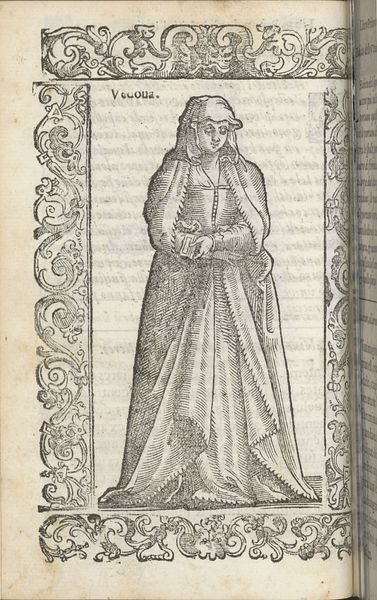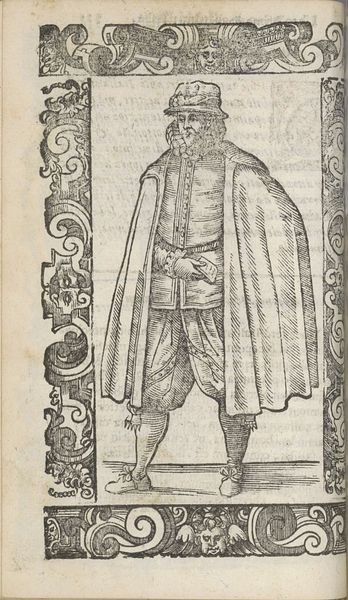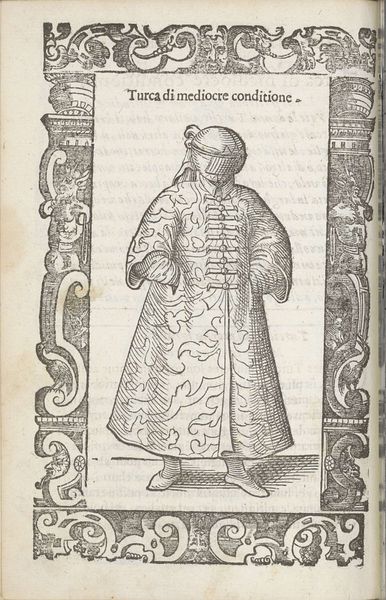
drawing, print, paper, engraving
#
portrait
#
drawing
#
medieval
# print
#
figuration
#
paper
#
line
#
history-painting
#
northern-renaissance
#
engraving
Dimensions: height 167 mm, width 125 mm
Copyright: Rijks Museum: Open Domain
Christoph Krieger's 'Matrona Coloniense' is a woodcut, likely dating to the 16th or 17th century, a period when printmaking was transforming visual culture. The process begins with a block of wood, painstakingly carved to leave the design raised. This is a subtractive process. The artist must be incredibly skilled in using chisels and gouges to remove the material. Ink is then applied to the raised surface and transferred to paper, creating a reversed image. The stark contrast between the black lines and the white paper gives the 'Matrona Coloniense' its distinctive graphic quality. Look closely at the way the lines are used to create shading and texture, defining the folds of the matron's elaborate gown, and the ornate borders that frame the image. The material of the print is inextricably linked to the social context of its making. Printmaking democratized images, making them available to a broader audience, and facilitating the spread of ideas and information. Considering the image's material and production processes allows us to appreciate the skill and labor involved in its creation, and its role in the wider cultural landscape of its time.
Comments
No comments
Be the first to comment and join the conversation on the ultimate creative platform.
